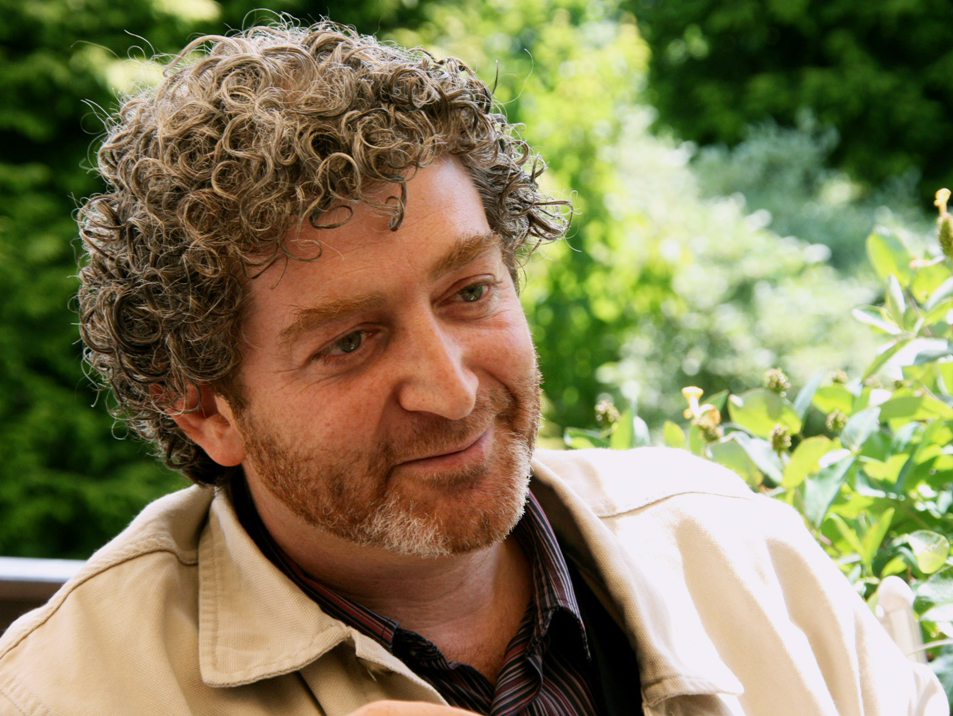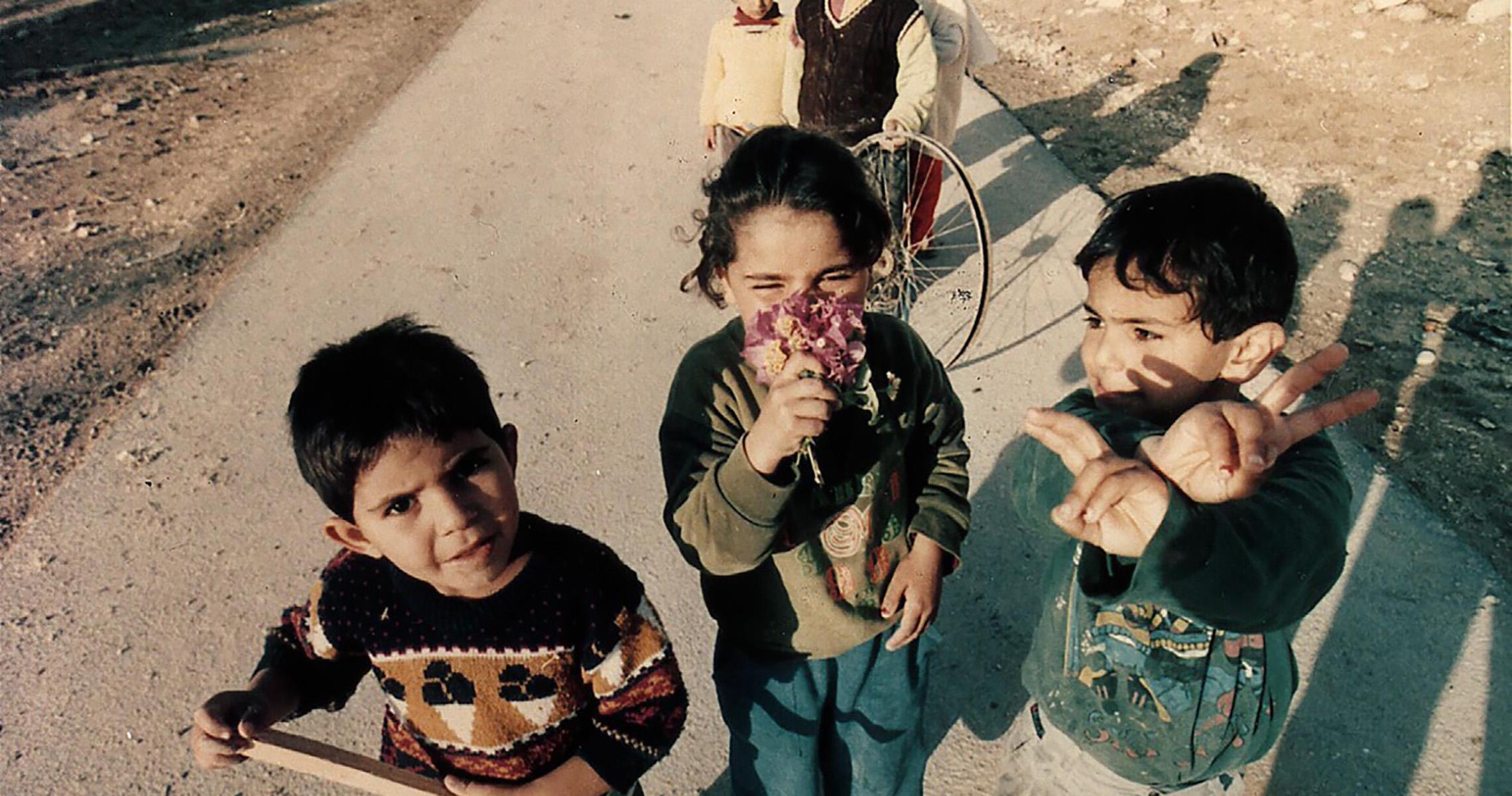


Anca Păunescu: Eyal Sivan at One World Romania

Eyal Sivan is a documentary filmmaker, theoretician, and lecturer, renowned for his uncompromising political stances and for using cinema as a tool to question and review dominant narratives of the past and present.
A noteworthy figure among politically engaged filmmakers, whether engaged in direct observation or decoding how history and ideology are constructed through visual media, Eyal Sivan has distinguished himself through a provocative point of view that turns inwards, towards “us”, and not “the other”, as well as through an ongoing exploration of diverse approaches to cinema and filmmaking.
Eyal Sivan was born in Haifa in 1964, to Jewish immigrants from Uruguay. He spent his formative years in Jerusalem, starting his career as a photographer and transitioning to cinema as a self-taught filmmaker, after moving to France in 1985.
With over 30 years of activity, Sivan defines documentary filmmaking as an “encounter with reality”. One of his defining encounters was with Walter Benjamin’s work and his concept of “brushing history against the grain”, which has continued to influence Sivan’s filmmaking throughout the years. “…for me documentary is not just a practice, it is also an attitude… If everyone is looking at a particular subject or issue from a particular vantage point, maybe we should move a little over to the side and look at it from another viewpoint. This is what I call the attitude.”
Author of over 15 films and various visual media works, Sivan has been celebrated at prestigious festivals and art shows worldwide, and has had numerous retrospectives dedicated to his work. Yet he hasn’t been spared from controversies, critiques and censorship for his unwavering takes on the society he comes from and power dynamics.
He considers it an intellectual’s and filmmaker’s duty “to provoke something in the political conservatism and stagnation…”. “I always took the notion of provocation in a positive way. …If you are not controversial, you are what? Consensual?”
His extensive body of work (in film and in writing) delves into themes of memory, historical representation, national identity, (dis)obedience, and responsibility. He has tackled subjects such as the political violence and genocide in Rwanda and Burundi, as well as the state control and repression carried out by the Stasi in the former GDR. Nevertheless, the majority of his films and his frequent lectures are concerned with the Israeli-Palestinian conflict, the relationship with the historical past, memory as resistance or as a political tool, documentary filmmaking, and ethics.
To our audience, Eyal Sivan is not an unfamiliar name. In 2019, OWR screened one of his emblematic documentaries, “Route 181: Fragments of a Journey in Palestine-Israel”, co-directed with renowned Palestinian filmmaker Michel Khleifi. This year, we are truly delighted to showcase 5 selected films from Eyal Sivan’s rich filmography in the presence of the filmmaker himself.
Our focus on Eyal Sivan will start with “AQABAT-JABER, PEACE WITH NO RETURN” (1995), in which the director portrays the conditions of the Aqabat-Jaber refugee camp following the Oslo Accords and the region’s evacuation by the Israeli army in 1995. This film serves as a follow-up to his debut documentary, “Aqabat-Jaber, Passing Through” (1987), shot in the same refugee camp prior to the first Intifada.
Despite the historical value and the critical success of his portrayal of the Aqabat-Jaber refugee camp, Sivan later took a critical distance from the usual documentary practice of giving voice to “the other”, the oppressed or the disenfranchised, and shifted the point of view towards “us”, formulating insights on Israeli society and politics from an “inside” perspective — something which became a trademark of his work, and that he further developed in his subsequent films.
With “IZKOR: SLAVES OF MEMORY” (1990) Sivan goes back to his country of birth to capture the events dedicated to the remembrance of the past happening during the month of April, as well as the immersive experiences also taking place during the same month. By observing the “duty of memory” within the Israeli educational system, as it spans from kindergarten through school and into the “destiny-fulfilling” moment of the military draft, Sivan examines how the collective memory of the past shapes society’s relationship to authority and contributes to the construction of the state’s national identity.
Ten years following his departure from the city, Sivan takes us in “JERUSALEM(S), BORDERLINE SYNDROME” (1994) on a frenetic exploration through the streets of the ‘Holy City”, amidst pilgrims, tourists and locals. His camera stumbles on, but goes beyond cliches, becoming an intruder that is either greeted with violence and at times spat at, or accepted in resignation. Combining fictional elements with documentary observations, Sivan’s Jerusalem is a cacophony of projections, of fantasies, where the sacred becomes the commercial, the desire to own lapses into delirium and the three religions’ togetherness is devoured by visible and invisible divisions. A fascinating, hallucinatory sleepwalk that one has to engage with and escape from at the same time.
Continuing his exploration of the themes of obedience and responsibility, Sivan embarks with “THE SPECIALIST – PORTRAIT OF A MODERN CRIMINAL“ (1999) on another cinematic journey and phase that delves into archival footage. (The “Specialist” is based on 350 hours of footage from Adolf Eichmann’s trial in 1961). Inspired by Hannah Arendt’s concept of the “banality of evil” Sivan meticulously restored, re-edited, and reprocessed the footage, focusing on the representation of genocide through the perspective of the perpetrator. Sivan didn’t aim to create another historical film about World War II, but to challenge the conventional representation of the Nazi perpetrator as the ultimate evil by contrasting his monstrous crimes to what H. Arendt called “a terrifyingly ordinary person”, who was “just following orders” when organizing the mass deportations to concentration camps. (“I was a soldier. I had to obey”). By shifting the “classical” focus from the victim to questioning the perpetrator, Sivan’s intention may also be to challenge broader concepts such as the Weltanschauung of “just doing my job,” and to incite self-reflection in all of us as the audience.
In his political essay “JAFFA – THE ORANGE’S CLOCKWORK” (2009) Sivan reviews the visual history of the famous Jaffa orange brand by using an impressive array of archival material (from projections of the “holy land” envisaged by early 20th-Century photographers, to post-1948 advertising and propaganda footage of the “blossoming dessert”). By deconstructing the imagery and ideology of Jaffa as a symbol and place, Sivan uncovers a past nearly erased from memory – a time of shared Jewish-Arab life in Palestine before the year 1948. This isn’t merely a nostalgic look backwards, but, as one protagonist suggests, it holds a potential “ticket to the future.”
We will be screening these five documentaries, coming from different periods of Eyal Sivan’s filmmaking practice, from Monday to Friday. After the screenings, we will have the opportunity and privilege to get inspired and challenged by the artist’s perspectives on filmmaking, and to engage with the author in various discussions on the sensitive topics of past and present, truth and fabrication, reality and fiction in political filmmaking.
All of this will be concluded by an extensive masterclass held by the author on Saturday, 13th of April.
Anca Păunescu

Aqabat-Jaber, Peace with no Return? Eyal Sivan
1995 61′ Palestine Izkor, slaves of memory 1990 Eyal Sivan
1991 97′ Israel Jaffa, The Orange’S Clockwork Eyal Sivan
2009 88′ Israel, France Jerusalem(s), Borderline Syndrome Eyal Sivan
1994 65′ Israel The Specialist – Portrait Of A Modern Criminal Eyal Sivan
1999 128′ Archive footage